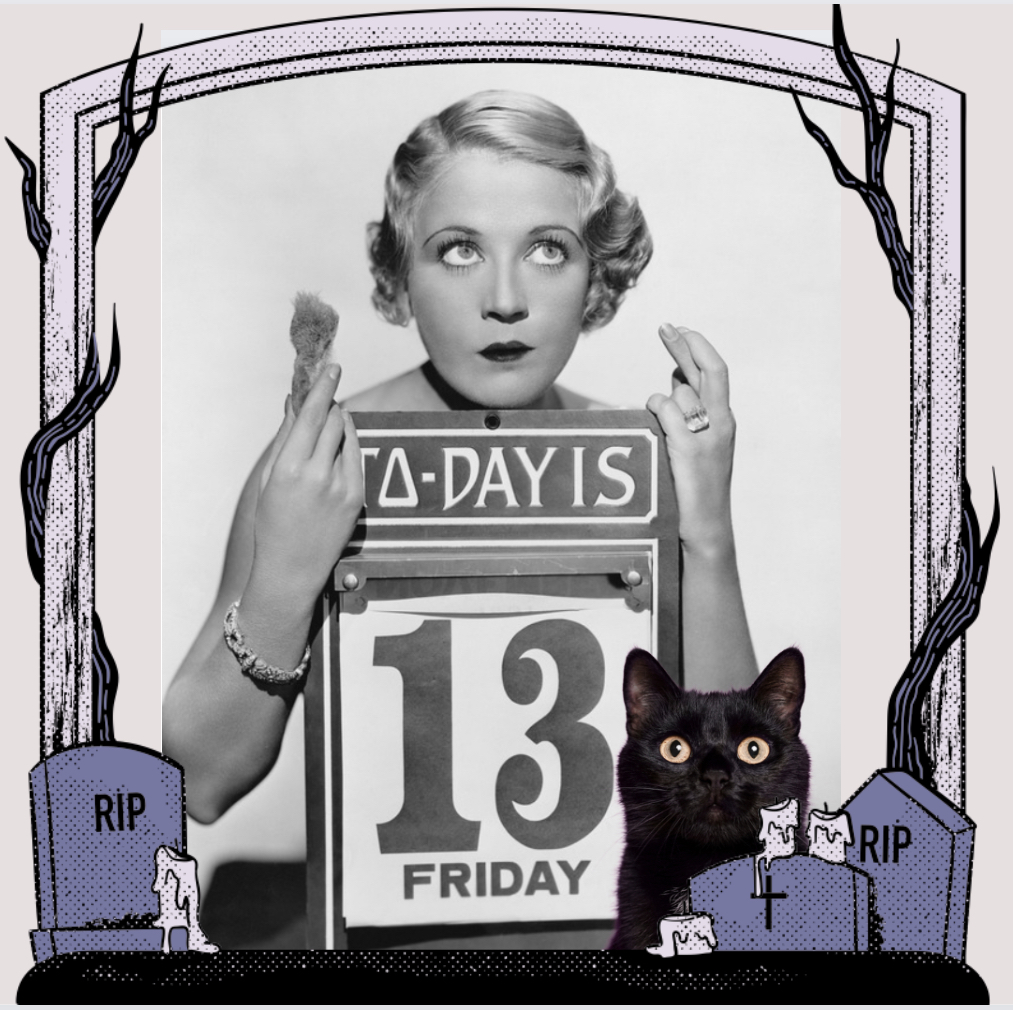October 13, 2023, is a Friday, the second of two Friday the 13ths we’ll see this year. If you suffer from friggatriskaidekaphobia – an irrational fear of Friday the 13th–you might want to stay home. But for most of us, the date is historically pretty average in terms of Luck, whether good or bad. But where did this day’s spooky reputation begin?

Long before the 1980 slasher flick “Friday the 13th” introduced the masses to a hockey-masked Jason Voorhees, the date had stirred up fear and superstition. The number 13 has perhaps been considered unlucky since ancient times. One Norse myth told of a dinner party for 12 gods, crashed by the trickster god Loki, who shot Balder (the god of joy and happiness). In Christian lore, the tale of the Last Supper similarly considers Christ’s betrayer Judas as the “unlucky” 13th guest. Legend thus held that a table of 13 foretold death, and dinners would cap seats at 12.

In many old Tarot decks, the thirteenth card represents “Death”. Buildings often skipped 13th floors, hospitals and hotels won’t have room number 13, and couples often avoid the date for wedding plans. Mark Twain held other ideas, and having been seated as the 13th guest at a dinner party, quipped that the affair was indeed unlucky, in that “They only had food for 12.”

Some used the number’s notoriety to their advantage. According to the New York Historical Society, Captain William Fowler was a prominent soldier in the Civil War who ran in high-profile circles in the late 1800s, and counted some former presidents as friends. Fowler noticed that the number 13 had repeatedly appeared throughout his life (he went to Public School No. 13 in New York City, where he graduated at 13, for example. In construction he’d built 13 buildings and fought in 13 battles at war). Fowler took issue with the number’s unpopularity and decided to combat the “popular superstition against thirteen,” according to his obituary. He famously started the Thirteen Club, holding its first meeting on Friday, Jan. 13, 1882, at 8:13 p.m., in room 13 of Fowler’s bar, the Knickerbocker Cottage.

Four former U.S. presidents (Chester A. Arthur, Grover Cleveland, Benjamin Harrison and Theodore Roosevelt) would join the Thirteen Club’s ranks at one time or another. In 1907, author Thomas William Lawson published the novel “Friday the 13th,” a story of Wall Street thieves who cashed in on the unlucky day, and spread the superstition’s popularity even further. However, while there have been some very unlucky events recorded that occurred on the date, it has proven to be no better or worse than any other. So enjoy this mid-month precursor to Spooky Season…Halloween is just around the corner!

Of course, this isn’t our only superstition that lingers from days of yore. Check out why we’re afraid of walking under ladders, and other quirky superstitions’ origins:
Breaking a mirror brings seven years of bad luck: The ancient Romans believed that mirrors held fragments of the soul. Combining this notion with the belief that the body renews itself every seven years, breaking a mirror was thought to condemn the soul to seven years of misfortune.

Blessing someone after they sneeze: The reflex to say “Bless you” when someone sneezes originated from an old superstition. It was believed that a person’s soul momentarily separated from their body when they sneezed, leaving them vulnerable to the devil’s influence. Saying the blessing was a way to protect their soul from being stolen.
Crossing your fingers for luck: This superstitious act traces back to pre-Christian times when crosses symbolized power and unity. People believed that the center area of the cross held special power, so they crossed their fingers and made wishes, focusing on that central point.
Avoiding walking under ladders: The association between ladders and gallows in medieval times led to the belief that passing under a ladder meant impending death by hanging. Additionally, it was believed that the space beneath a ladder was haunted, further discouraging anyone from tempting fate.

Wishing on birthday candles: The ancient Greeks baked cakes topped with candles to seek favors from Artemis, the goddess of the moon. Extinguishing the candles released smoke that was believed to carry the message to the gods above.
Knocking on wood for luck: Ancient pagans believed that spirits resided within trees, and knocking on tree trunks would summon them for protection. The tradition also served as a way to express gratitude when something positive occurred. Over time, the tradition evolved in various cultures, with Christians associating it with the cross and Jews linking it to knocking on wooden synagogue doors for shelter during the Spanish Inquisition.
Opening umbrellas indoors is considered bad luck: This superstition can be traced back to ancient Egypt, where umbrellas were used to shield from the sun. Opening them indoors was seen as an insult to the sun god. In 18th century England, the act was also discouraged due to the umbrella’s dangerous mechanics in confined spaces.
Carrying a lucky rabbit’s foot: The notion of rabbits being lucky is rooted in Celtic mythology. Their subterranean dwellings led people to believe they had a direct connection with the gods. In more recent times, the rabbit’s reputation for fertility made rabbit-themed charms popular among women hoping to conceive. While most rabbit foot charms today are made of synthetic materials, the association with luck persists.




















